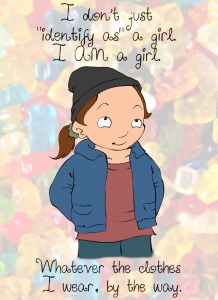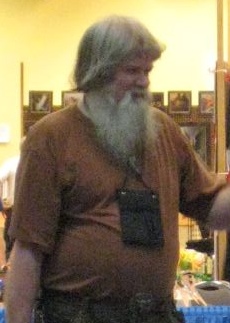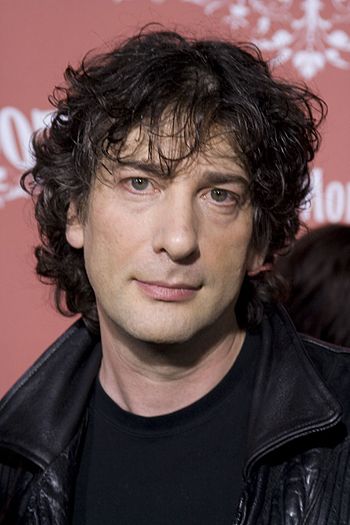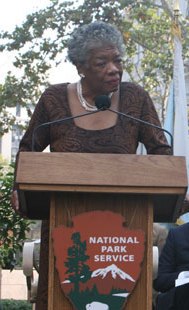To those who govern and those who make legislation,
What purpose does it serve you to discriminate against those whom you are sworn to serve? Or to encourage and support those who would do so?
First of all, your oaths of office are to serve your states, counties, countries, cities … not select portions of it, but all of it. Seems to me, you’ve an obligation to all of them, minority or not, rich or poor, LGBTQIA+ or not, it doesn’t matter.
Then there’s the simple fun fact that you’re an elected official. Seems to me that running on a platform of hatred, oppression, discrimination, etc. may help in the short run, if you can stir up enough of one crowd and hope more of them can get to the polls (or somehow discourage the rest from making it to them) than those whom you’ve just campaigned to alienate. Once in office you have to hope your vitriolic efforts don’t push too far and alienate even those who once supported you.
Most importantly, it’s just self destructive. What good is it to legislate or govern a state that is destitute? What worthwhile businesses will a state, city, county, country, or what have you attract if that place is doing all it can to tell people they aren’t welcome here? Worse, what businesses will want to be beholden to the laws of a place that might be so two-faced as to claim to be welcoming but then is exclusionary in practice?
Businesses want the best and brightest. Most have learnt that this means accepting people for who they are so that they aren’t missing out on some brilliant individual who will help them to turn over that almighty profit. They won’t find their best and brightest in a place that drives them off, that discourages them moving there in the first place, and so on.
Alabama and other states fighting so hard to block marriage equality? You might want to stop and realise how foolish you look.
Georgia, Texas, and others trying to pass “right to discriminate” laws? Oh, you’ll attract some businesses with that, but not the kind you’re liable to be terribly proud of: places that’ll be in constant litigation over wage theft and other labour abuses looking for one less thing they can get sued for.
Uganda and other places trying to actually criminalise people being themselves? Newsflash, this isn’t the Dark Ages; we’ve broken the sound barrier and walked on the moon! Can’t we get over such archaic lunacy? Certainly not too many companies are liable to want to do business somewhere that is stuck in the 10th century.
It doesn’t just have to be sexuality or gender identity. How about women? The poor? True, if no one is treating a demographic well then you’ve nothing to worry about; but that’s not the case. When every Carolinian who can is headed to California, Vermont … or Americans headed for Switzerland, Norway …
Taxes! Your money. Where will it come from? You want people to want to stay, and to want to come. You want people to have jobs that pay them well. Conservative politicians may not have realised it, but the 19th century is over, and with it the viability of a system ruled and owned by a small elite over an enslaved majority. That can work in agrarian societies, feudalism or its analogues, but today that just won’t fly. What makes money isn’t pigs and corn, chickens and beets … it’s money, it’s commerce. Industry, even, in the end is commerce.
Commerce doesn’t work if people haven’t jobs. Jobs are worthless if there’s no money. Do you really think it wise to encourage unemployment by acting rashly?
Yes, you have constituents who believe a woman’s place is in the home and by an extension of “logic” that is more than a little meandering shouldn’t earn the same as men (and which has apparently, blissfully, started not to be argued … now it’s sticking to weird political slants), that marriage is defined thus, that [race] are God’s special ones … you’ve also constituents who believe their sofa talks to them. All of them have the right to believe that – in most democracies, anyhow, and it’s a good idea to push for it in places that don’t – but the rest of us have the right not to be subject to that by the same freedoms. I mean, barring ones where being non-Muslim is illegal, even Islamic states with the Quran enshrined in their constitution draw a line where non-Muslims aren’t subject to that holy book except where ideas overlap (e.g. No Stealin’!!). Just as you would not seriously pass legislation that sofas are citizens with rights et al you shouldn’t take seriously those who, no matter their numbers, would argue beliefs as law.
You want to legislate holy books? How about “judge not”? How about charity? How about hospitality? How about Man was made to be the stewards of this world? All of those come from the Christian Bible that so many who are fond of legislating intolerance seem inclined to cite … funny how the same ones legislate against social aid programs, environmental protections, equality, immigration … then again, those same voices do all they can to defund education; funny, the American South tried banning slaves being literate, even for a time before that tried to not let the slaves be Christian at all in order to keep them knowing about things like the book of Exodus. I suppose shouting the Old Testament to people who can’t make heads nor tails of the New Testament works, but to what purpose?
Have you a plan for what to do with these people? Certainly not hire them, even the good straight Christians are now illiterate & useless as employees beyond the most menial tasks. Not have them in your cities; you’ve done all you can to criminalise being broke and/or homeless … even if you regressed things to an Antebellum society, are you ready to live in an age of outhouses, woodstoves, gas lamps, and horsedrawn buggies? Today’s society was built by, for, and with a middle class enjoying freedom and economy for leisure … they sent their children to colleges, bought cars and computer, they watched movies, listened to radios …
No sirs, madams, and others … conservatives who want to maintain a status quo that no longer exists must, therefore, push for regression; and regression is always harmful. History teaches us this; the Dark Ages didn’t get their name from a candles shortage or some solar calamity. They were a regression from a time of high literacy, education that permitted the building and maintaining of such things as flushing toilets, hot & cold running water, widespread international (and intercontinental) trade, effective medicines and surgeries, and more. Put bluntly: for a few centuries, most of Europe had lost the fork.
Conservativism has a place. It’s good for society to have a voice that says “hold on, now, is this change good? Or is it just change for the sake of change?” Fiscal conservativism doubly so, except today’s fiscal conservatives less often ask “General/President/Congressman, just where in Hell do you expect to find the money for this idea?” and, instead, are more inclined to cut specific spending, but hand blank cheques over to other sorts … often much more expensive sorts.
It’s all related. Is it worth spending so much to defend state laws & amendments that should never have been taken seriously enough to have made it to a ballot in the first place? Defending it costs money. It’s bad press: businesses looking askance at your environment & thinking they can attract better talent elsewhere (whoops, there goes various tax & license funds). It’s that much less work for existing business (more marriages means more caterers and florists get work!). It’s that much more spent on welfare to take care of children waiting to be adopted. It’s lost spending by people who leave, never move to, or never want to visit.
It is said that evil carries the seed of its own downfall. What can be more evil than hatred, whether you choose to dress it in fancy clothes and call it discrimination or not, it is what it is. And denial of rights or denial that what is being withheld is a right is intolance, discrimination, in a word: hate. Look at World War II Germany … perhaps, if the Nazis hadn’t been so eager to round up Jews, gays, and others it would have been they who had the first atom bombs; it was more than a few of their scientists who helped the US invent the thing, after all.
Simple point of note: history remembers Lincoln freeing the slaves, and that Lyndon Johnson signed the Civil Rights Act. No one knows the names of those who put the slaves in their chains, and in the Biblical story of Moses the oppressor was a villain and liberator a hero. Who is recalled more kindly? Dr Martin Luther King or Chancellor Adolf Hitler? Ghandi or Genghis Khan?
Your place in history was recorded the day people took to the polls. What role will you play in history’s narrative? Hero or villain? Saint or sinner? Healer or murderer? Bringer of peace or of war?
Maybe it’s time to look around and see that there’s a bigger world, a bigger picture, than your campaign podium and your biggest contributers, because shortsightedness could cost you personally, will almost certainly affect your children, is all but guaranteed to affect their children, and their children have no choice but to face the consequences of our actions today. Remember that Reconstruction, after the American Civil War, was a slew of rash decisions that came to a head almost exactly 100 years later.
Good day.
Ms Jaye Edgecliff
Related articles
- Bigotry hiding behind religion (dailykos.com)
- Christian: if New Testament is false, why not Hebrew Bible too? (dailyminyan.com)
- The Tanakh and the Talmidim of Yeshua (roshpinaproject.com)
- Bulletin Article: Marriage Is More than a Piece of Paper (grantspasschurchofchrist.com)
- Maybe the Apostle Paul was just a lousy writer (patheos.com)















